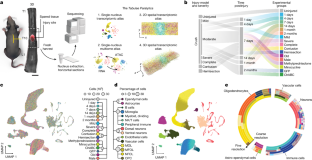2024-06-19 スイス連邦工科大学ローザンヌ校(EPFL)
<関連情報>
- https://actu.epfl.ch/news/building-a-blueprint-of-metabolic-health-from-mous/
- https://www.cell.com/cell-systems/fulltext/S2405-4712(24)00150-9
BXDマウス遺伝的参照集団における代謝健康のシステム遺伝学 Systems genetics of metabolic health in the BXD mouse genetic reference population
Xiaoxu Li,Jean-David Morel,Jonathan Sulc,…,Arwen W. Gao ,Maroun Bou Sleiman
Cell Systems Published:June 11, 2024
DOI:https://doi.org/10.1016/j.cels.2024.05.006
Highlights
- Metabolic health score (MHS) can indicate health status in mice and humans
- MHS is associated with a specific transcriptomic signature in livers of BXD mice
- QTL analysis revealed two MHS-associated genetic loci in multiple mouse populations
- TNKS and MCPH1 are identified as modulators for metabolic homeostasis across species
Summary
Susceptibility to metabolic syndrome (MetS) is dependent on genetics, environment, and gene-by-environment interactions, rendering the study of underlying mechanisms challenging. The majority of experiments in model organisms do not incorporate genetic variation and lack specific evaluation criteria for MetS. Here, we derived a continuous metric, the metabolic health score (MHS), based on standard clinical parameters and defined its molecular signatures in the liver and circulation. In human UK Biobank, the MHS associated with MetS status and was predictive of future disease incidence, even in individuals without MetS. Using quantitative trait locus analyses in mice, we found two MHS-associated genetic loci and replicated them in unrelated mouse populations. Through a prioritization scheme in mice and human genetic data, we identified TNKS and MCPH1 as candidates mediating differences in the MHS. Our findings provide insights into the molecular mechanisms sustaining metabolic health across species and uncover likely regulators. A record of this paper’s transparent peer review process is included in the supplemental information.
Graphical abstract


